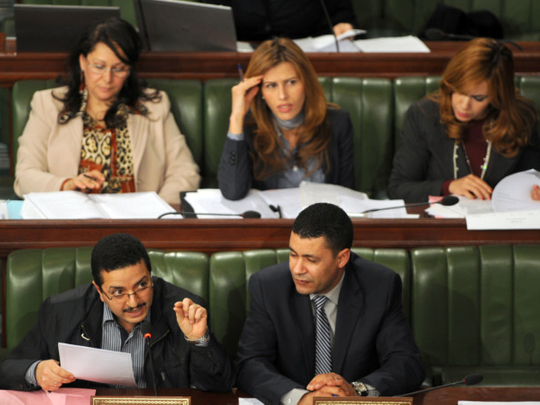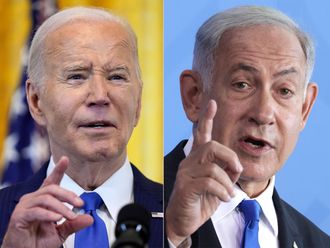
Tunis: Tunisian lawmakers are to vote on Sunday on adopting a long-delayed new constitution, seen as crucial to getting the democratic transition back on track more than three years after the revolution.
Lawmakers completed their line-by-line scrutiny of the text late on Thursday after three weeks of heated debate and disagreement on a range of subjects, including the role of Islam, women’s rights, the independence of the judiciary and the president’s powers.
The charter now needs the approval of two-thirds of the 217 assembly members to be adopted.
This would pave the way for the appointment of a caretaker cabinet of independents headed by premier designate Mehdi Jomaa and tasked with leading the country to parliamentary and presidential elections, scheduled to take place later this year
Karima Souid, information officer at the constituent assembly, said the plenary session was set for 9am (1000 GMT) on Sunday, after earlier indicating that the vote would take place on Saturday.
Instead, MPs will meet on Saturday afternoon to reform the rules of the censorship motion, making it harder to dismiss the new government, to which the ruling Islamist party Ennahda agreed to hand power, under a deal to end months of political deadlock.
Jomaa will also present his cabinet line-up to President Munsif Al Mazouqi on Saturday, at 6pm (1700 GMT), with a vote of confidence in the technocrat government due to take place on Tuesday, according to Al Nahda, which holds the largest share of seats in the assembly.
Al Nahda’s veteran leader Rashid Gannouchi hailed the draft charter as a “historic achievement”, which he said, would enable the establishment of the first democracy in the Arab world.
“We are at an advanced stage of the [democratic] transition, all that remains is to officially adopt this historic document and fix the date of the next elections,” Gannouchi said in a statement.
“We should be proud of what has been achieved, and translate that into ending the interim period and making Tunisia the first Arab democracy.”
‘Foundations of a modern state’
Hundreds of hardline Islamists gathered in Tunis on Friday to denounce what they branded a “secular” constitution.
“We are announcing our rejection of this constitution which serves foreign intelligence services ... We have one master, our Prophet Mohammad [PBUH],” one of the speakers shouted to the crowd, which waved black and white Islamist flag and shouted slogans demanding Sharia.
“It is a progressive constitution, responding to the hopes of the revolution ... and laying the foundations of a modern state,” said assembly speaker Mustafa Bin Jaafar, while recognising that “there could be improvements”.











